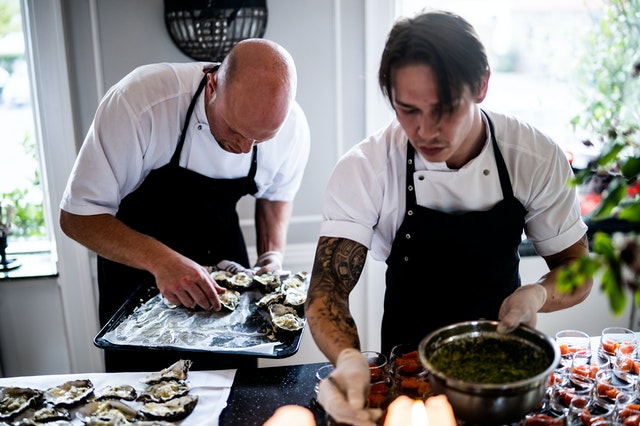Many of us simply live to eat. Eating, sharing and enjoying our food forms the backbone of so many of our experiences, and when you have a passion and love for creating beautiful and memorable meals, going into the food industry can be extremely rewarding.
Starting your own catering company is one great way to find your way and place in the industry, but there are plenty of potential pitfalls. The catering industry is cutthroat and you’ll need to make sure you’re performing at the top of your game, every single time. Here are some massive mistakes to avoid making in your catering business.
Relying on Your Own Kitchen
As a newbie in the industry, you might think that you’ll be okay relying on working in your own home kitchen. While this might be okay for small orders, or smaller businesses that provide only cakes, for example, this isn’t sustainable in the long-term.
When catering for a large event, you will need to find a commercial kitchen to work in. Many venues do have kitchens available for you to work in, which will make the job easy for you. However, this isn’t always the case.
You might need to find a commercial kitchen to use for the event, using the Ghost Kitchen Network. This is a great way to find what you’re looking for to suit your company and the event you’re working on, but don’t forget to factor the fees into your own charges.
Understaffing Your Business
A huge mistake that many caterers make is thinking that they can do it all on their own. Hiring labour is expensive – we know – but when you’re expected to produce top-quality food every time, it’s not worth risking your own burnout halfway through a job.
Aside from the cooking itself, you’ll probably need help with various tasks like planning and prepping, serving and cleaning up afterwards. The catering industry involves a lot more than simply serving up beautiful dishes, and you can’t be expected to do it with only one pair of hands.
If you can’t afford a full-time staff, consider hiring per event or season, which will allow you more flexibility with your expenses during quieter seasons.
Not Communicating With Your Client
The customer is always right, and when it comes to their food, you had better know exactly what they want and need. A lack of communication is what leads to disasters in this industry, so make sure you have all the details.
It’s important to get a clear idea of how many people you’re catering for, the times of service, what the client’s themes, ideas, and preferences are, as well as specific dietary requirements you’ll need to cater for.
The more information you can get, the better. It might also be a good idea to offer your client a tasting of your menu ideas before you set your ideas in stone. This way, you can make sure everything is perfect ahead of time and avoid disappointments and negative reviews.


